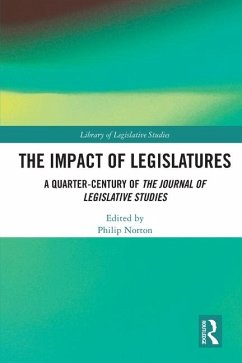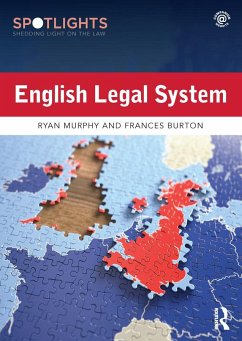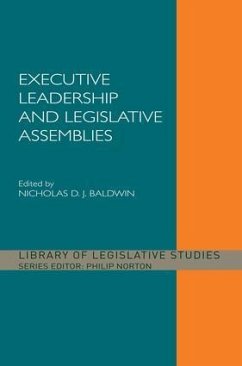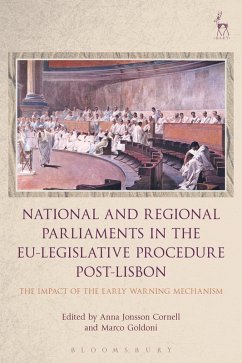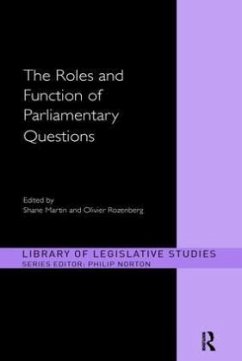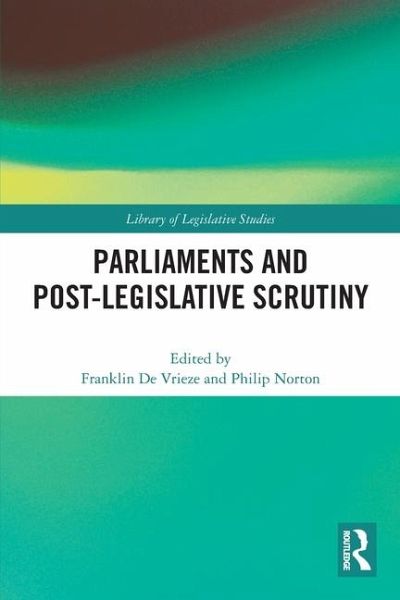
Parliaments and Post-Legislative Scrutiny
Versandkostenfrei!
Versandfertig in 6-10 Tagen
45,99 €
inkl. MwSt.
Weitere Ausgaben:

PAYBACK Punkte
23 °P sammeln!
To what extent have parliaments a responsibility to monitor how laws are implemented as intended and have the expected impact? Is the practice of Post-Legislative Scrutiny emerging as a new dimension within the oversight role of parliament? What approach do parliaments apply in assessing the implementation and impact of legislation? These are the fascinating questions guiding this book.Case studies offer an in-depth look at how particular countries and the European Union conduct Post-Legislative Scrutiny. The analysis puts Post-Legislative Scrutiny in the context of parliamentary oversight and...
To what extent have parliaments a responsibility to monitor how laws are implemented as intended and have the expected impact? Is the practice of Post-Legislative Scrutiny emerging as a new dimension within the oversight role of parliament? What approach do parliaments apply in assessing the implementation and impact of legislation? These are the fascinating questions guiding this book.
Case studies offer an in-depth look at how particular countries and the European Union conduct Post-Legislative Scrutiny. The analysis puts Post-Legislative Scrutiny in the context of parliamentary oversight and parliaments' engagement in the legislative cycle.
The purpose of this book is to demonstrate the value of Post-Legislative Scrutiny as a public good, benefiting the executive, legislature and the people in ensuring that law delivers what is expected of it, as well as to respond to the need for greater clarity as to what is meant by the term. In this way, the publication can assist legislatures to think more clearly as to what precisely they understand, and seek to achieve, by Post-Legislative Scrutiny.
This book is the result of the co-operation between the Centre for Legislative Studies at the University of Hull and the Westminster Foundation for Democracy. The chapters were originally published as a special issue of The Journal of Legislative Studies.
Case studies offer an in-depth look at how particular countries and the European Union conduct Post-Legislative Scrutiny. The analysis puts Post-Legislative Scrutiny in the context of parliamentary oversight and parliaments' engagement in the legislative cycle.
The purpose of this book is to demonstrate the value of Post-Legislative Scrutiny as a public good, benefiting the executive, legislature and the people in ensuring that law delivers what is expected of it, as well as to respond to the need for greater clarity as to what is meant by the term. In this way, the publication can assist legislatures to think more clearly as to what precisely they understand, and seek to achieve, by Post-Legislative Scrutiny.
This book is the result of the co-operation between the Centre for Legislative Studies at the University of Hull and the Westminster Foundation for Democracy. The chapters were originally published as a special issue of The Journal of Legislative Studies.





